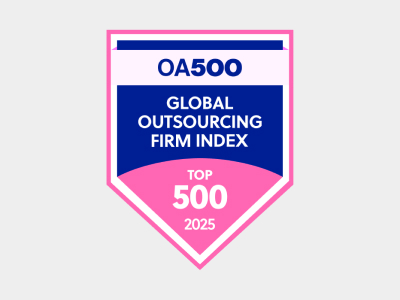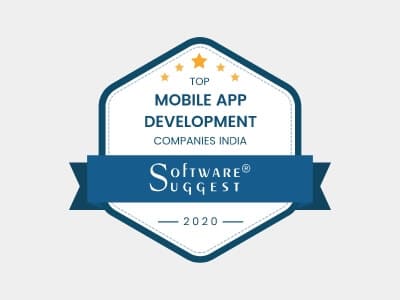Python’s simplicity and versatility have contributed to its popularity as a preferred language for web application development for enterprises of all kinds and sizes. One of the key advantages of Python is the extensive selection of web application frameworks it offers. You can hire Python developers with hands-on experience in frameworks to facilitate the creation of intricate business web applications by offering built-in tools and components. This can result in reduced development time and enhanced security for your business solutions.
In this blog, we will dive into some of the most popular Python web application frameworks: Django, Flask, Pyramid, Tornado, Bottle, Web2py, CherryPy, FastAPI, Dash, and Falcon. Each of these frameworks offers unique features and use cases, making them suitable for various types of projects.
1. Django
Overview
Django is a high-level Python web application framework that emphasizes rapid development and clean, pragmatic design. Created in 2005, Django is known for being a “batteries-included” framework, meaning it comes with many tools and libraries out of the box, such as an ORM (Object-Relational Mapping) system, authentication, and URL routing.
Key Features
- ORM: Django’s ORM allows developers to interact with databases without writing SQL queries. It supports multiple databases like PostgreSQL, MySQL, SQLite, and Oracle.
- Admin Interface: Django provides an automatic admin interface, saving developers time when managing the application’s content and users.
- Security: Built-in protection against common security threats such as SQL injection, cross-site scripting (XSS), and cross-site request forgery (CSRF).
- Scalability: While being a comprehensive framework, Django is scalable and can handle large applications with ease.
Use Cases
Django is an ideal Python web application framework for developing complex, database-driven websites. It’s perfect for e-commerce sites, social media platforms, and content management systems (CMS).
2. Flask
Overview
Flask is a lightweight web framework that offers flexibility and is often referred to as a “micro-framework.” Unlike Django, Flask provides only the essentials for web development, making it highly customizable. It was developed by Armin Ronacher in 2010 and focuses on simplicity and extensibility.
Key Features
- Minimalistic Design: Flask comes with basic tools, allowing developers to add extensions based on the project’s needs.
- Routing: Easy-to-understand routing system that maps URLs to Python functions.
- Jinja2 Templating: Flask uses the Jinja2 template engine, which allows for flexible and reusable HTML generation.
- Extensions: Flask has a rich ecosystem of extensions to integrate with databases, authentication systems, and more.
Use Cases
Flask is a great Python web application framework for small applications or projects that require a lot of flexibility. It’s commonly used for APIs, microservices, or when developers want full control over the application structure.
Build high-quality, advanced applications with expert Python app development
3. Pyramid
Overview
Another Python web application framework is Pyramid, a flexible, general-purpose web framework that aims to do as little as possible while making it easy to add complex features. Its primary goal is to offer the right balance between simplicity and power, letting developers start small and scale up as needed.
Key Features
- Flexibility: Pyramid allows you to start with minimal functionality and scale up by adding features like templating, routing, and more as the project grows.
- Extensible: It provides an extensive system for plugin integration, allowing developers to build highly customizable applications.
- Security: Pyramid includes security features like view-based access control, and protecting apps against security vulnerabilities.
Use Cases
Pyramid is suitable for both small, lightweight applications and large, complex projects, making it a versatile choice for developers who need scalability with flexibility.
4. Tornado
Overview
Tornado is an asynchronous Python web application framework and networking library, designed to handle large-scale, non-blocking I/O operations. It was initially developed by FriendFeed, a social media aggregator that was later acquired by Facebook.
Key Features
- Asynchronous I/O: Tornado’s non-blocking I/O makes it capable of handling thousands of simultaneous network connections, making it ideal for real-time web apps.
- WebSocket Support: Built-in support for WebSockets allows for real-time bi-directional communication between the server and the client.
- Scalability: Tornado is highly scalable, making it a go-to for handling high-traffic applications.
Use Cases
Tornado is the best Python web application framework suited for building real-time applications such as chat apps, online gaming platforms, and applications that require high-performance network handling.
5. Bottle
Overview
Bottle is another minimalist, micro Python web application framework that’s easy to use and deploy. It’s a single-file framework, meaning the entire application can be written in one file, which makes it a great choice for small projects or prototyping.
Key Features
- Simplicity: Bottle has minimal dependencies, making it lightweight and easy to use for small applications.
- Built-in Features: Includes essential components like templating, routing, and request handling without any external dependencies.
- Single-file Deployment: Perfect for small web applications where you want to keep things simple.
Use Cases
Bottle is a good fit for small applications, prototyping, and APIs that don’t require much overhead.
6. Web2py
Overview
Web2py is a full-stack Python web application framework that simplifies the process of creating secure and scalable web applications. It requires no configuration and provides a web-based interface for managing applications.
Key Features
- Web-based IDE: Web2py comes with its own web-based IDE, making it easy to develop applications without any additional software.
- Built-in Components: Offers built-in support for handling forms, data validation, and file uploads.
- Security: Automatic security mechanisms prevent common vulnerabilities like SQL injection and cross-site scripting.
Use Cases
Web2py is a good option as a Python web application framework for developers who want an all-in-one solution without worrying about configuration. It’s perfect for building secure and scalable web applications quickly.
7. CherryPy
Overview
CherryPy is an object-oriented Python web application framework that allows developers to build web applications in a simple and efficient manner. It’s been around since 2002 and provides tools for working with HTTP, but leaves most of the application architecture to the developer.
Key Features
- Object-Oriented: Encourages an object-oriented approach, making it easy to maintain and extend applications.
- WSPGI Compatibility: CherryPy works with Python’s WSGI standard, making it interoperable with various other Python web frameworks.
- Minimalistic Design: Similar to Flask, CherryPy provides the essentials and lets developers build the application architecture as needed.
Use Cases
CherryPy is suitable for developers who want more control over their application’s architecture but still want a framework to handle the basics of HTTP interaction.
Build a scalable, high-performance backend architecture with our expert development team
8. FastAPI
Overview
FastAPI is one of the newer frameworks in the Python ecosystem and is designed for building fast and efficient APIs. It’s built on ASGI (Asynchronous Server Gateway Interface) and uses type hints for automatic validation and documentation.
Key Features
- Fast Performance: Built for high-performance APIs, FastAPI can handle high loads and concurrency.
- Automatic Documentation: Automatically generates OpenAPI documentation based on type annotations in your code.
- Asynchronous Support: Native support for asynchronous programming, making it ideal for real-time applications.
Use Cases
FastAPI is perfect for developers building modern APIs that require speed, concurrency, and ease of documentation. It’s ideal for machine learning APIs, real-time data processing, and other performance-intensive applications.
9. Dash
Overview
Dash is a Python web application framework specifically designed for creating web applications for data visualization. It’s often used to build dashboards and is heavily integrated with Plotly, a popular graphing library.
Key Features
- Interactive Graphs: Dash allows you to build highly interactive data visualizations with minimal code.
- Simple and Powerful: Focuses on simplicity but is powerful enough to create complex applications for data analytics.
- Supports Big Data: Designed to handle and visualize large datasets efficiently.
Use Cases
Dash is widely used in the data science and analytics community to build dashboards, data visualization tools, and interactive reports.
10. Falcon
Overview
Falcon is another minimalistic, high-performance Python web application framework primarily used for building APIs. It’s designed to be lightweight and fast, with a focus on reliability.
Key Features
- High Performance: Falcon is optimized for speed, making it one of the fastest Python web frameworks available.
- Minimal Dependencies: Lightweight by design, Falcon comes with minimal dependencies, reducing bloat and increasing performance.
- RESTful API Support: Specifically built for creating RESTful APIs with support for large request bodies and efficient routing.
Use Cases
Falcon is ideal for developers building APIs where performance is a critical requirement. It’s well-suited for microservices and high-performance backends.
Looking for optimized Python development services?
There are various frameworks of Python web development landscape that cater to different business or domain needs. From comprehensive and feature-rich frameworks like Django to minimalistic options such as Flask and Bottle, you have multiple choices at WeblineIndia. The selection of the Python web application framework should be based on factors like project scope, complexity, and specific requirements.
Regardless of whether you are developing real-time applications, APIs, or data visualization dashboards, there is a Python web application framework suited to enhance efficiency and manageability. Reach out to us now to utilize the appropriate Python web application framework and establish a dominant position in the market with impeccable business solutions.
Social Hashtags
#Python #WebDevelopment #PythonFrameworks #WebAppDevelopment #Django #Flask #Pyramid #Tornado #Bottle #Web2py #CherryPy #FastAPI #Dash #Falcon #SoftwareDevelopment #PythonProgramming
Boost your business with expert Python development services from WeblineIndia. Fast, reliable, and tailored solutions.
Testimonials: Hear It Straight From Our Global Clients
Our development processes delivers dynamic solutions to tackle business challenges, optimize costs, and drive digital transformation. Expert-backed solutions enhance client retention and online presence, with proven success stories highlighting real-world problem-solving through innovative applications. Our esteemed Worldwide clients just experienced it.
Awards and Recognitions
While delighted clients are our greatest motivation, industry recognition holds significant value. WeblineIndia has consistently led in technology, with awards and accolades reaffirming our excellence.

OA500 Global Outsourcing Firms 2025, by Outsource Accelerator

Top Software Development Company, by GoodFirms

BEST FINTECH PRODUCT SOLUTION COMPANY - 2022, by GESIA

Awarded as - TOP APP DEVELOPMENT COMPANY IN INDIA of the YEAR 2020, by SoftwareSuggest